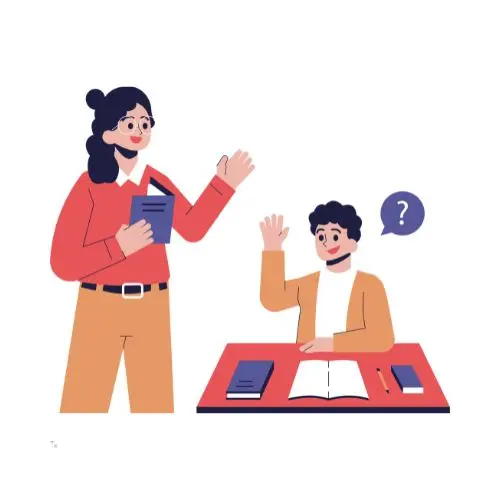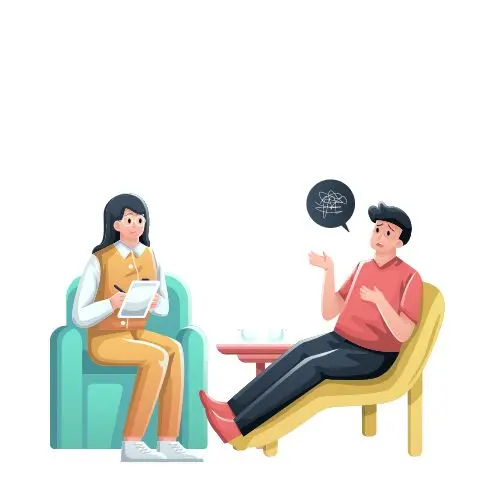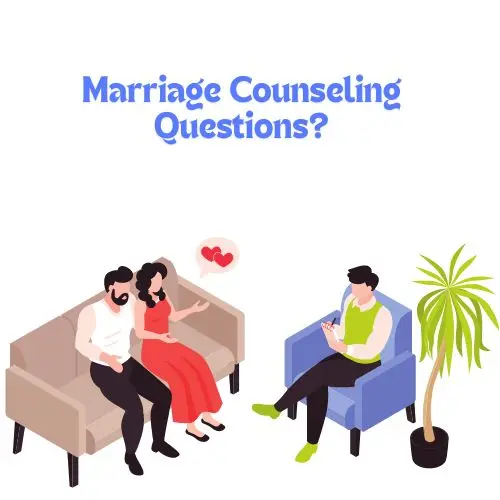Introduction
If a couple wants to mend their relationship after going through a rough patch, they can benefit from marriage counseling. Choosing to receive counselling is not always simple. For both spouses, there will probably be a lot of questions regarding the procedure. Some of the most frequent questions in marriage counselling are addressed by relationship specialists.
Key Statistics on Marriage Counseling in the United States
| Statistic | Number |
|---|---|
| 18-29-year-olds find cohabitation acceptable, even if marriage isn’t the goal | 78% |
| Number of couples that seek marriage counselling per year | 2.5 million |
| Percentage of couples that attend counselling for 1-5 sessions | 22% |
| Percentage attending for 6-10 sessions | 32% |
| Percentage attending for >10 sessions | 46% |
| Percentage of couples reporting improvement after counseling | 75% |
Should We Get Marriage Counseling?

Deciding if marriage counselling is right for your relationship can be difficult. Here are some signs it may be time to seek professional help:
- Frequent arguing disrupts daily life
- Unable to communicate without anger or resentment
- Ongoing infidelity or trust issues
- Talk of separation or divorce
- Feeling unhappy and disconnected from my partner
If several of these apply to your marriage, counselling may assist you in gaining tools to communicate more effectively and reconnect.
How Do We Find the Right Counselor?
Finding the most suitable marriage counsellor for your needs is key to having a beneficial experience. Here are some tips on selecting one:
- Get referrals from friends, primary care physicians, or online directories
- Check credentials and licenses to ensure proper training
- Look for specialists in marriage/couples counselling.
- Ensure they use evidence-based approaches to treat issues in marriages
- Have a brief phone consultation to ask questions before committing
Make sure you and your spouse feel comfortable opening up to the counsellor you choose. Feeling understood and heard is vital.
What Happens During the First Marriage Counseling Session?
The initial marriage counselling session generally involves the counsellor:
- Explaining their philosophy, approaches, and process
- Getting background on your relationship history and current concerns
- Having each partner describe what they hope to achieve
- Setting goals for therapy sessions
- Starting to evaluate your communication styles and interaction patterns
- Suggesting ideas for changes to thoughts, feelings, and behaviours
It can feel awkward to share intimate relationship details, but this enables the counsellor to assess issues and start tailoring interventions. Being open and honest is important.
How Can We Get the Most Out of Marriage Counseling?

To have a rewarding, productive experience, consider this marriage counselling advice:
“Commit fully to the process. Don’t hold back on sharing your thoughts and feelings. Be willing to listen without judgment. Reflect on your own role in problems. Complete suggested readings or assignments at home to reinforce new skills. Most importantly, keep communicating with your partner.”
- Dr. John Gottman, couples researcher and author
What Are Some Common Approaches in Marriage Counseling?
Counselors often integrate concepts from various therapies in working with couples. Here are some of the most common marriage counselling approaches:
Cognitive-Behavioural: Identifies negative thoughts and behaviour patterns. Teaches interpersonal skills to improve communication and increase positive interactions.
Gottman Method: Draws on Dr. Gottman’s research to help couples build friendship and intimacy. Focuses on conflict management, trust, and understanding one another’s needs.
Emotionally-Focused: Has couples identify negative cycles then actively reprocess fights and upsets. Partners learn to meet each other’s attachment needs better.
Solution-Focused: Rather than analyzing past problems, this strength-based approach has couples envision their ideal future relationship and take action to get there.
The counsellor you see will likely integrate techniques from a blend of such approaches while catering to your relationship’s unique needs.
What Kinds of Questions Might Come Up?
Marriage counselling involves a lot of questioning, self-examination, and discussions. Some issues commonly explored include:
- How do we resolve arguments more constructively?
- Can we identify each other’s needs and emotional sensitivities?
- What positive communication strategies can we implement?
- How do we get better at listening and validating each other?
- How have family backgrounds, childhood wounds, or past relationships affected our interactions?
- What steps can we take individually and as a couple to improve our marriage?
Reflecting on these questions leads to greater understanding between you and your partner while identifying specific changes to make.
What Happens If One Person Is Reluctant to Attend Sessions?

It is best if both partners fully commit to counselling. However, one may be more motivated to go initially. A counsellor can still help facilitate communication even if attendance is uneven. Over time, the reluctant individual often becomes more engaged after seeing positive changes.
If a partner refuses to attend at all, the willing spouse can still gain support and relationship skills from individual counselling. This may eventually motivate the other to participate.
Our Marriage Problems Seem Small. Is Counseling Right for Us?
You don’t need to be on the verge of divorce to seek counselling. In fact, it’s wise to get help early on. A counsellor can give you tools to strengthen communication, prevent resentment from building, and deepen intimacy. Investing when issues seem minor prevents bigger problems down the road.
Past hurts, misunderstandings, or bad communication patterns easily intensify over time. It’s better to acknowledge them and learn strategies to overcome them. Counselling is about gaining a healthier foundation.
How Much Does Marriage Counseling Cost on Average?
According to recent surveys, the average cost per marriage counselling session ranges from 75-150. Many counsellors offer sliding scale fees based on household income. Sessions generally run 45-60 minutes weekly or bi-weekly. The number needed to resolve issues varies significantly by the severity of the problems.
Some employee assistance programs provide referrals for free or discounted counselling. Additionally, some health insurance plans to cover a portion of the costs if the counsellor is in-network. Shop policies and contact counsellors to learn more about potential cost offsets.
How Long Before We See Results from Counseling?

Patience is necessary when gauging progress in marriage counselling. Attempting to fix years of problems in a few sessions is unrealistic. Allow sufficient time for each partner to change how you relate, communicate, and support one another.
Many couples describe benefits from the initial experience of feeling truly heard, understood, and supported during the first sessions. Over time, continued gains come from learning new strategies and insights into oneself and one’s partner.
For optimal results, consistency is key – both during sessions and while completing assignments at home. The more effort invested, the greater rewards the marriage will reap.
Is Marriage Counseling Right for Us? 9 Key Questions to Consider
Deciding if counselling could help your marriage is complex. Beyond just cost or time considerations, reflecting on a few key questions can provide clarity:
- Are we both willing to be open, honest, and vulnerable in sharing thoughts, feelings, and histories related to our conflicts?
- Will we commit to listening without judgment, blame, or anger toward what the other shares?
- Are we prepared to be patient and let go of expecting instant fixes to long-standing wounds or patterns?
- Will we complete suggested readings, assignments, and continued conversations outside sessions to reinforce changes?
- Do we still retain any affection, friendship, appreciation, or motivation to improve things between us?
- Are we willing to take an honest look at our own role in problems and make personal changes needed to improve the relationship?
- Will we apply new communication strategies and tools recommended by the counsellor?
- Are we both eager to better understand each other’s needs, emotions, and perspectives?
- Will we keep investing effort over time without giving up at the first sign of difficulty or backsliding?
If you can answer yes to most of these questions, marriage counselling may be just what your relationship needs. Both parties’ key predictors of success are openness, motivation, and perseverance.
Conclusion
Seeking professional guidance takes courage but can vastly improve marital satisfaction. Counselling equips couples to handle conflicts, meet emotional needs, and reconnect. Have patience with the process and actively apply the counsellor’s suggestions. If both partners are committed to understanding, listening, and validating one another, reconciliation and growth are within reach. There is hope for any marriage willing to do the work.

